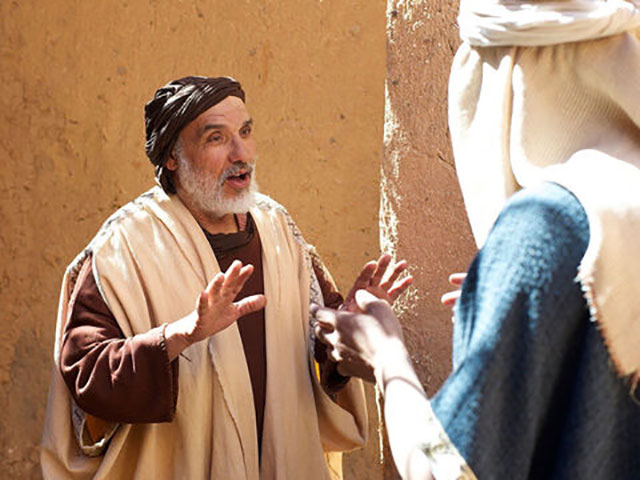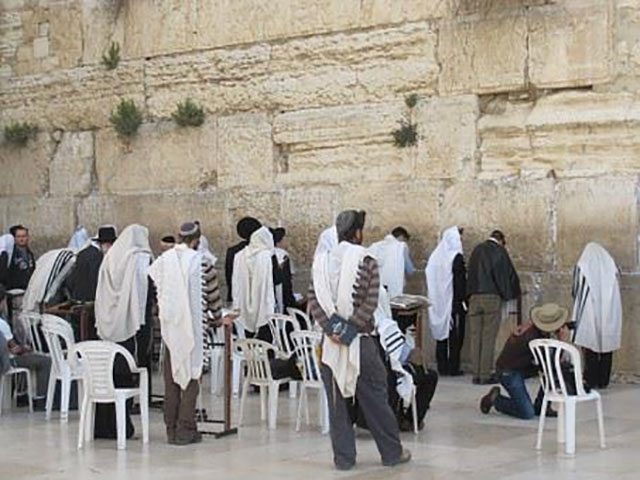
Good morning my “Walking with Jesus” friends,
Intimidation, bullying, persecution and even torture have sadly been a widespread part of the human experience in almost every country of our world for centuries. The brutality of mankind against each other is well documented and every living person likely bears some emotional scars of such behavior. Probably you won’t have to look very hard to see evidence of it in your town, your neighborhood or maybe even your extended family.
Sadly, I know of no group of people who have suffered more injustice, persecution and even ethnic cleansing over the Millenia than the Jewish people. 2000 years ago, in the city of Jerusalem and all over the Roman empire, it was no different. Roman military power was unquestioned, too often vicious and Jews were very often targeted. Deeply rooted ethnic and religious tensions between Jews and Samaritans and Gentiles too often bubbled over into confrontations privately but also in the market and other public places. Tensions were high almost everywhere in first century Palestine and it only got more complicated with a new religious movement, the followers of Jesus the Christ.
The Romans viewed them as a cult which claimed a resurrected and ascended Savior Jesus, but also some type of spiritual power known as the Holy Spirit. Sometimes amazing miracles occurred, attributed by these “Christians” to the Holy Spirit and it always drew crowds. Crowds raised the tension and anxiety of Roman soldiers. Nothing good ever happened in the frenzy of a crowd. The Jews viewed Jesus followers as traitors to God, to Moses, to their Jewish history and traditions. It was a dangerous time across the empire, and Jerusalem in particular was a dangerous place to be known as a follower of Jesus. In some cases, the name “Christian“, which was the name given these Jesus followers in Syrian Antioch, was also being used in Jerusalem. It was not a complimentary term when used by Romans or Jews.

Stephen the deacon had been stoned to death by an angry Jewish mob under the authority of Saul the Pharisee, remember Acts 7:59? James the apostle, dear friend of Jesus and brother of John, had been executed by King Herod. (Acts 12) And Peter, the apostle, had been imprisoned, and word had spread Herod intended Peter would be executed next, but he miraculously escaped (Acts 12:3-17) and he wisely fled into the night. Dr. Luke, the author of Acts, who gives us the story of Peter’s angelic rescue, gives no hint as to where Peter went. I’ve often wondered if first he went to Bethany, to the home of Lazarus, Mary and Martha, where Jesus and his disciples had often spent time?
From there, perhaps Peter may have headed east toward the desert, across the Jordan river and then north, back home to Galilee and back to his fishing for a while…out of the limelight. Luke is careful not to disclose Peter’s cautious absence. With John’s brother James dead, and Peter away from Jerusalem, a new leader arose. James the brother of Jesus had become one of the key leaders of the Jerusalem Jesus movement shortly after Jesus’ ascension.
Now, with tensions rising all across the land, James was led by the Holy Spirit to write a letter of encouragement, calm, instruction and challenging hope to the Jewish Christians, scattered by persecution to cities and towns all across the Roman empire.

This little letter, which bears James’ name, while located near the back of the New Testament, is actually believed to be the first document written after the resurrection and ascension of Jesus, which was distributed to Jewish Jesus followers across the Roman empire and preserved to be included in our Bible. You’ll find James’ letter after the New Testament book of Hebrews and before Peter’s first letter. We believe James wrote his letter about 48ad, about the same time Paul and Barnabas were returning to Antioch from their first missionary journey, which we’ve traced lately.
This little letter brought great hope and assurance to Jewish Christians and united them as a Jesus movement, though they were scattered far and wide. Over the next several days, let’s sit down next to James and listen as he writes, seeking to understand WHY he wrote, WHAT it was intended to mean to those Jewish Christians living in great fear; and WHAT Jesus wants us to understand from it today, 2000 years later, wherever you live in our frightening world.
James makes it clear how he views himself and how he wants us to be known. I’m fascinated that he does not spend time identifying himself as a son of Mary and Joseph or any human relationship to Jesus, but rather he writes: “James, a servant of God and of the Lord Jesus Christ.” (James 1:1) Like all the apostles, and authentic Jesus followers, our greatest privilege and identifying trait is that once God has saved us from our sin, He calls us to be ‘servants‘ both of Almighty God, our heavenly Father, and of Jesus Christ, God the Son, our Savior. Pause a moment. Is ‘servant of God‘ how you see yourself? What does it mean to you and how does it define your priorities in life, my friends? Would any adjustments need to be made in your values, your passions, your priorities if that really became your identifying trademark: ‘a servant of God and of the Lord Jesus Christ.”?
James also makes it clear to WHOM he is writing this little letter: “To the twelve tribes scattered among the nations…” The Jewish Christian recipients of this letter would have rejoiced at the sound of that! Their heritage was very important to them. Parents made sure their children knew with certainty which ancestral Hebrew tribe of Israel was their family roots. As little Hebrew boys were circumcised on the 8th day after their birth, a bold proclamation was made over them by their father and if alive, their grandfather, assuring all in attendance of their cherished Hebrew bloodline. When the infant boy’s name was first pronounced often it came with an explanation as to which Hebrew ancestor was being honored by this childbearing their name. James, at the outset, is calling Jewish Christians everywhere to celebrate their Jewish heritage, their Jewish identity. James is confirming that when Jews trust in Jesus to be their Savior they do NOT abandon their Jewishness but rather they find it COMPLETED as Jesus is their Messiah! The respectful term “Messianic Jew” is often used for such a Jewish believer and “Messianic Congregation” for a gathering of “Messianic Jews”, even in our day.

James then jumps right into the fray, the primary issue of the day… persecution, living intimidated. “Consider it pure joy my brothers and sisters, whenever you face trials of many kinds, because you know that the testing of your faith develops perseverance.” (James 1:2,3) James’ letter would have been sent as a scroll and intended to be read out loud, to a gathering of all the Jewish Christians in any town where it arrived. I imagine the reader paused right here. They had applauded when the first verse was read celebrating their Hebrew heritage.
But now with James’ call to receive trials, persecution, problems with ‘joy’, well that causes a ripple of concern all through the room and in the hearts of every person hearing these words. Persecution, injustice, trials of all kinds was what they lived in fear of every day, but James was urging them to consider a very different attitude and response…JOY! Now, how could that be possible? James gave the answer… Joy is found in persecution when we know God our Sovereign and Master is watching over His servants and has permitted these difficult times! In fact, God may be up to something significant!
Now if that’s shocking, consider this: These people knew Jewish history very well. Persecution, slavery, captivity, ethnic cleansing was a frequent part of the Jewish story going back to the days of their Hebrew ancestors enslaved by Egypt after Joseph had died. But over and over in their history the names of their great heroes like Moses, Joshua, Samuel, Daniel, David and so many more called them to realize that in the darkest most difficult times, God was at work for His glory! James was not calling them to develop a calloused back to withstand the persecutors whip! Oh NO, James was calling them and also us, to develop the ability to SEE the bigger picture of Sovereign, Almighty God at work in the difficult times of life.
That perspective is rooted in the assurance that God is Sovereign over all things, at all times, in all places and nothing occurs outside of God’s awareness. Also, that God is Omnipotent and can unleash His power at any time in any situation for His glory, including giving His people the power to withstand persecution, injustice and horrible things.
Now let’s pause right here with these Jewish Christians hearing the James scroll read for the first time. How do you feel and respond when problems, challenging situations nearly overwhelm you? Can you find JOY in the fact that Jesus reigns from His heavenly throne room as KING over all things, including the Kingdom of God, and if you’ve trusted Jesus to be your Savior He reigns as Your king! Here’s a song to help us celebrate this great truth, my friends.
Bible images provided with attribution to www.LumoProject.com.
Have a comment or question about today’s chapter? I’m ready to hear from you, contact me here.

Pastor Doug Anderson 262.441.8785
“Let us run with perseverance the race marked out for us, with our eyes fixed on Jesus…” (Heb. 12:1,2)
Archived back issues of “Walking with Jesus” and other resources are available by clicking here to open our ‘home page’ (or go to HOME at upper right of this page).
Share with friends. Subscribe below for daily “Walking with Jesus”.
Facebook
Twitter
LinkedIn
Pinterest
Email
WhatsApp


